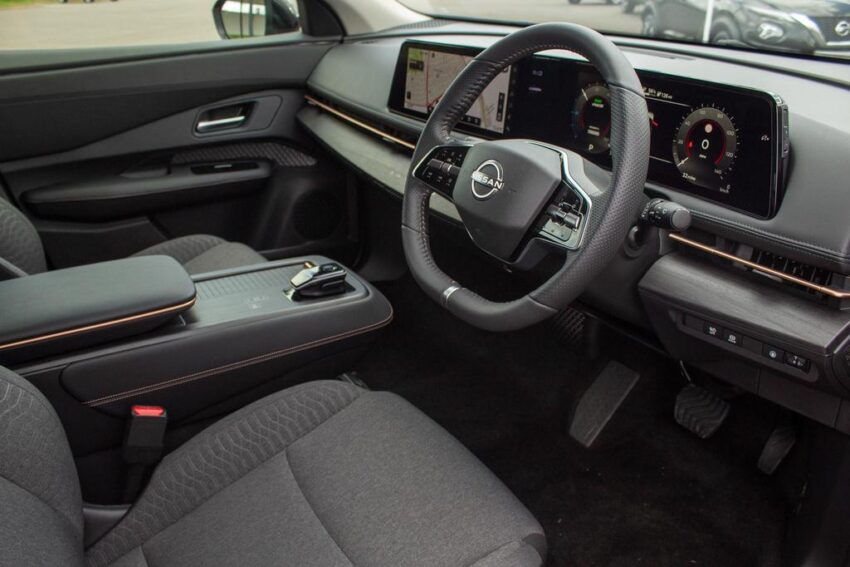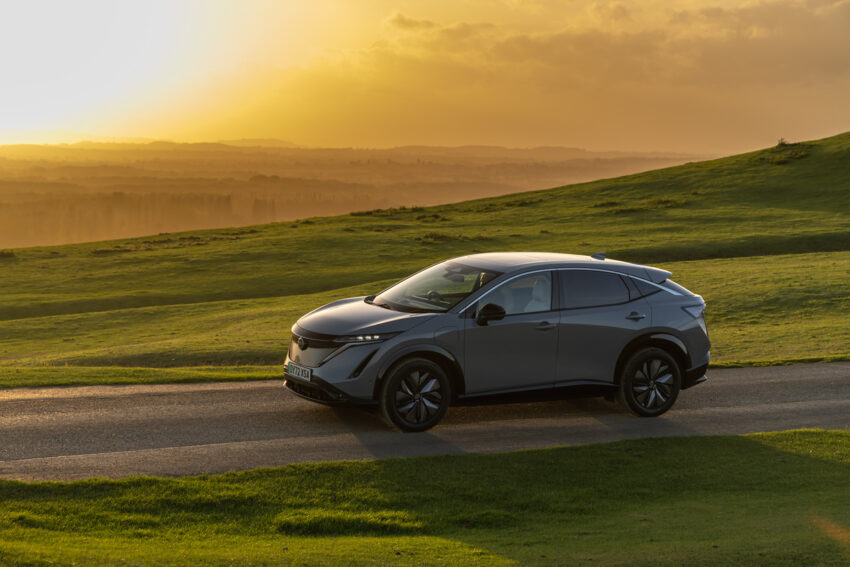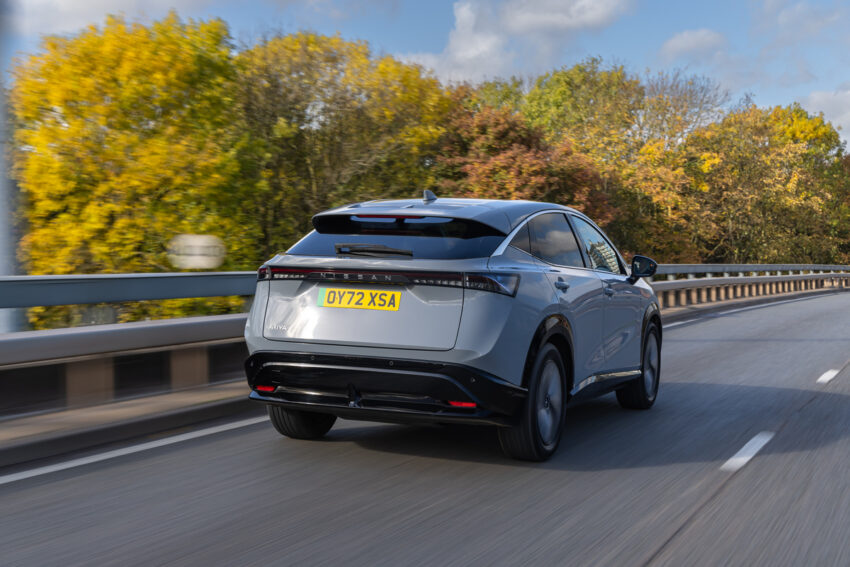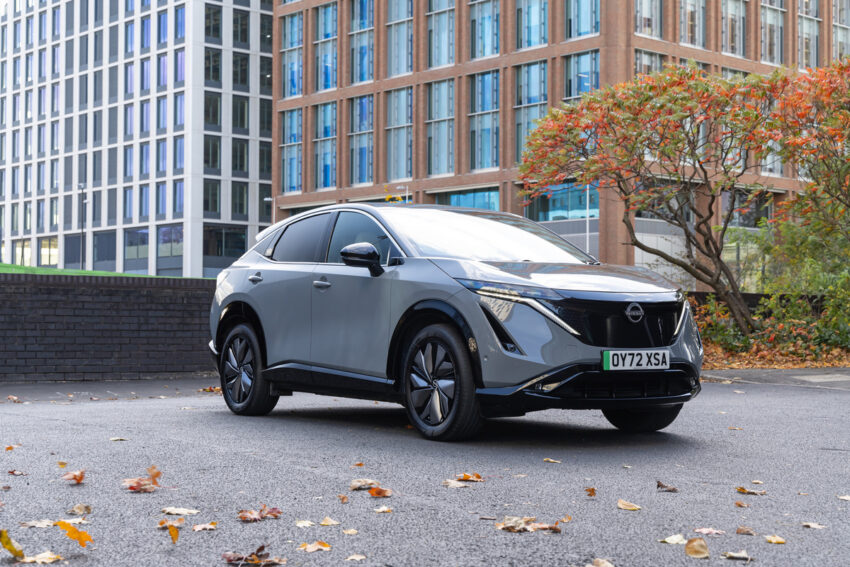Nissan Ariya Engage review: entry-level EV strikes smart balance
The cheapest version of Nissan’s flagship EV costs less than £40,000 but does this entry-level model add up to good value?
is in a slightly odd place right now with its EVs.
The firm that pioneered the affordable electric car has stopped production of the Leaf in Sunderland in preparation for building three new EVs and, apart from a couple of rebadged Renault vans, has just one electric model on sale – the Ariya.
While that car has impressed us in the past with its performance and premium feel, it’s never been mainstream in the same way as the Leaf, largely due to prices that start some way north of £40,000 and reach almost £60k in the highest-spec versions.
So to address that and widen the Ariya’s appeal, Nissan launched a new entry-level Engage model to bring its price under £40,000.
That’s quite a big deal as it brings this large, premium-tinged SUV into the same realm as a higher-spec Qashqai as well as within shooting distance of a variety of smaller mainstream electric SUVs from Stellantis, Hyundai and Kia.
The biggest step to reducing the price has been with a smaller battery and lower-powered motor but do other cost-cutting measures harm the Ariya’s appeal?
Design, interior and technology
From the outside, there’s not much to distinguish this cheapest of Ariyas. It still has the same slippery, swooping SUV looks and the same 19-inch alloys with plastic aero trims as the next-level Advance model. The LED lights lack the adaptive function of more expensive versions and there are no LED foglights, but visually there’s very little to give away that this is the entry-level car.
Inside, it’s a little more obvious. The first giveaway is the fabric upholstery in place of the faux leather of other grades. The fancy motorised centre console has also been replaced with a static one, which at least saves some weight. The largely pointless powered drawer in the dash has also gone, replaced with an even more pointless manual hatch that’s big enough for a phone or wallet but not much else. And it feels really cheap, as does the button to open it. In fact, the whole lower dash looks and feels a lot less premium than the rest of the interior.

But apart from that and the lack of a sunroof (even as an option), the Engage shares most of the qualities of any other Ariya. The rest of the cabin looks and feels well made, with good quality materials and retained touches such as the copper trim line and paper lantern-inspired footwell lighting. And, like every Ariya, there’s loads of room for four on board, and a really airy, spacious feel.
To keep costs down, the Engage does without some of the standard tech from other models. That means there’s no ProPilot system with its traffic jam assist and lane keep assistance. Nor is there the autonomous parking or a head-up display, even as an option.
Battery, motor and performance
As standard, the Engage comes with Nissan’s smallest battery and motor combination.
That means a 63kWh battery powering a single rear-mounted motor. You can choose the Engage with the 87kWh battery but that adds £5,000 to the price. It also brings 80 extra miles of range but the 63kWh model’s 251 miles is respectable enough and as good as most sub-£40k alternatives. The Engage model also retains the same 130kW DC charging of other models.
Dual-motor versions of the Ariya bring a surprising amount of pace to this relatively large car but even the single-motor Engage doesn’t feel lacking. With 214bhp it still makes decent progress. Zero to 62mph takes a reasonable 7.5 seconds and there’s enough quick response from the throttle for most situations, although don’t expect anything sparkling in the handling stakes.

Like a few EVs I’ve driven recently, the rear-driven model feels less settled on the road than all-wheel-drive variants, reacting more obviously and harshly to bad surfaces. It’s not terrible but is noticeably less composed than the more expensive versions.
Price and specification
As mentioned, the headline figure around the Ariya Engage is its £39,695 price tag.
For that you still get auto-dipping LED headlights, dual-zone climate control, a 12.3-inch infotainment screen with built-in navigation, wireless Apple Carplay and wired Android Auto, plus a solid list of driver assistance and safety systems ranging from all-round parking sensors to adaptive cruise control. You also get a heat pump, something that’s often missing from cheaper versions of EVs.
But you do miss out on creature comforts such as heated seats, a power tailgate, privacy glass and the 360-degree camera that are standard on every other version.
The pricing puts the Ariya in a strange middle ground. It’s slightly larger and more expensive than things like the Hyundai Kona and Peugeot E-2008 but cheaper than more obvious alternatives such as the Ford Explorer, Volkswagen ID.4 and Kia EV6. Perhaps, more pertinently, it undercuts similarly specified but less impressive rivals such as the Honda e:Ny1 and KGM Torres EVX.
Verdict
The Ariya is a fundamentally good car but its price has been a bit of an issue. The Engage model addresses that concern without diluting the Ariya’s appeal too much. There are a few signs of cost-cutting but nothing too upsetting given the alternatives in the sub-£40k bracket and the range and performance are perfectly respectable, while it offers impressive space and comfort for the money.
For a company that’s built on mainstream fare like the Qashqai, it’s a useful step into the more mainstream EV market for Nissan.

Nissan Ariya 63kWh Engage
- Price: £39,695
- Powertrain: single-motor, rear-wheel-drive
- Battery: 63kWh
- Power: 214bhp
- Torque: 221lb ft
- Top speed: 100mph
- 0-62mph: 7.5 seconds
- Range: 251 miles
- Consumption: 3.5m/kWh
- Charging: up to 130kW






